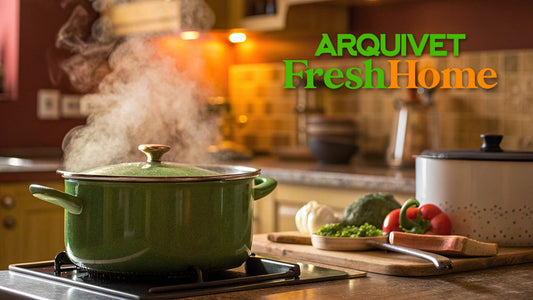
How to prepare our dog for the cold
During the winter, we take special care to ensure our faithful companion is not affected by the drop in temperature. In addition to taking into account general aspects such as the place where we are – north or south zone – or the breed of our dog, can help him fight the cold as much as possible, guaranteeing your well-being and, also, our peace of mind, following some simple steps.
Dogs have a series of characteristics that protect them from the cold. The layer of fat in their skin acts as the first barrier against low temperatures. Add to this their fur, and you have a truly natural coat. This is why dogs don't feel the cold the way we do. However, we must not be careless And to think that our dog doesn't need anything else to combat the cold, rain, or snow. Nothing could be further from the truth!
We know how important your dog's health is to you, so we have prepared this article with Everything you need to know to prepare and protect your furry friend from the cold winter.
Let's get started!
Visit your veterinarian
To start the list of tips, a visit to the vet to check that our dog is in optimal condition is an ideal way to start winter.
Visiting the vet at least once a year to ensure our pet is in perfect health should be part of our routine. If we only go to the vet when we notice something is wrong with our dog, we recommend a visit to the vet before winter, regardless of whether we have a reason to or not, to ensure our dog's good health.
Strong health is your best bet to face the low temperatures..
Feeding
Proper nutrition will not only ensure the good health of your pet, but will also contribute to its appearance. a coat in optimal condition that protects him from the cold. So, during the winter, you can include foods or supplements rich in oil that care for their coat.
¡Beware of Christmas leftoversDuring the holidays, like Christmas, we tend to give our dog a little gift. The truth is, many foods that we think will be good for them and that they'll love, can harm your body. It's best if you want your dog to also enjoy Christmas gifts, to use food and treats specifically designed for them. They love them, and they're also good for their body. But remember to always do this. in the right measure and without abusing.
Fur
As we mentioned in the previous section, the coat is one of a dog's natural barriers against the elements. Whether it's to withstand high or low temperatures, the fur acts as a thermoregulator, forming an air chamber under their fur that keeps them at an ideal temperature. Therefore, it is It is vitally important that we guarantee its care and optimal maintenance.
Regular brushing will help remove dead skin cells, boost circulation, and distribute oil. Plus, if we include brushing in our pet's routine, we will be preventing the appearance of fleas and ticks.
Coat accessories
Coats have become, over time, one of the most popular dog accessories. And no wonder! Coats are a excellent protection for our dogs as temperatures drop. Not only does it protect them from the cold, but it will also protect them from the rain.
If your dog still doesn't have a coat to protect himself from the cold, be sure to visit the section of dog fashion what brings you Arquivet, where you'll find a wide variety of waterproof dog coats, vests, and sweaters in a wide variety of designs—even Christmas-themed ones!—and colors.
Protect your paws
Protecting your dog's paws and pads is especially important If we are in an area where snow or ice are common. These climatic factors, along with rain, can cause cracks in the pads, as well as irritations and infectionsWe'll need to take special care with puppies, as they haven't yet developed the necessary protection on their pads.
They exist adhesive creams that create a protective film on your dog's pads. If you're traveling in the snow, this is one of the best remedies to avoid causing damage to your pet's paws. You can also find special boots that will insulate you from the colder floors. As for the floors, Avoid stone floors as much as possible, since they tend to retain cold. Walks on land are better.
Warm shelter
If our dog does not spend the nights inside the house, we must make sure to provide him with the appropriate shelter and not to neglect aspects such as water, plenty of food, a bed and a blanket. In addition, We will have to make sure that your kennel is always dry and warm.Otherwise, our dog could catch a cold or suffer from other illnesses.
It is very important to take into account at this point the breed of our dog and its age. Large breed dogs tend to retain heat better than other sizes, although this will also largely depend on their coat. On the other hand, if our dog is already very old, we need to be aware that they won't tolerate low temperatures well, just like puppies, whose immune systems aren't 100% prepared and are very susceptible to colds.


